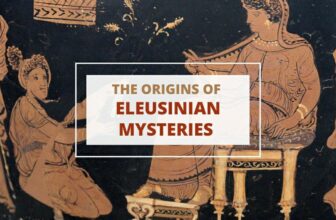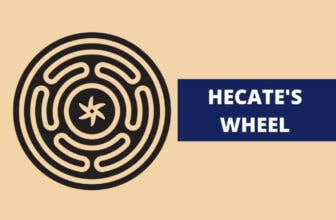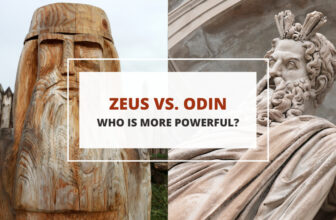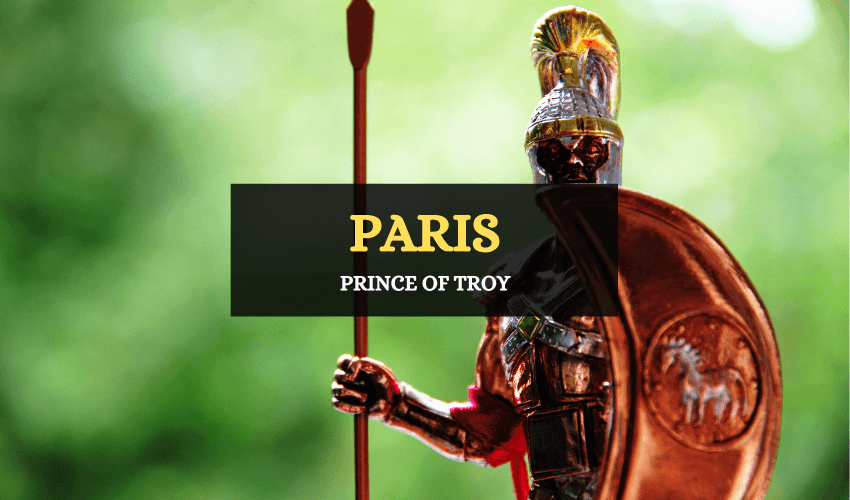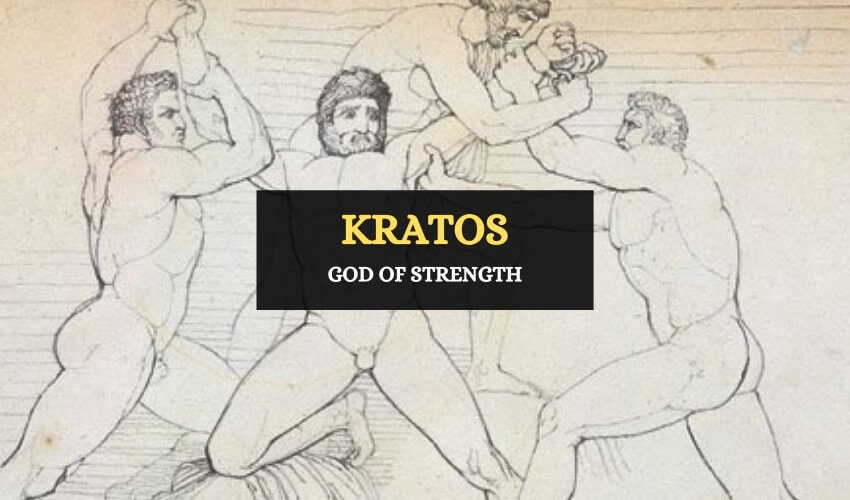
Table of Contents
Kratos, or Cratos, is an intriguing figure in Greek mythology, with conflicting stories surrounding his origins and later life. While many younger people know the name from the God of War video game franchise, the actual character from Greek mythology is very different from the one portrayed in the game. So much so that the two have almost nothing in common. Let’s take a look at the original Kratos, his role, symbols, and importance.
Who Is Kratos?
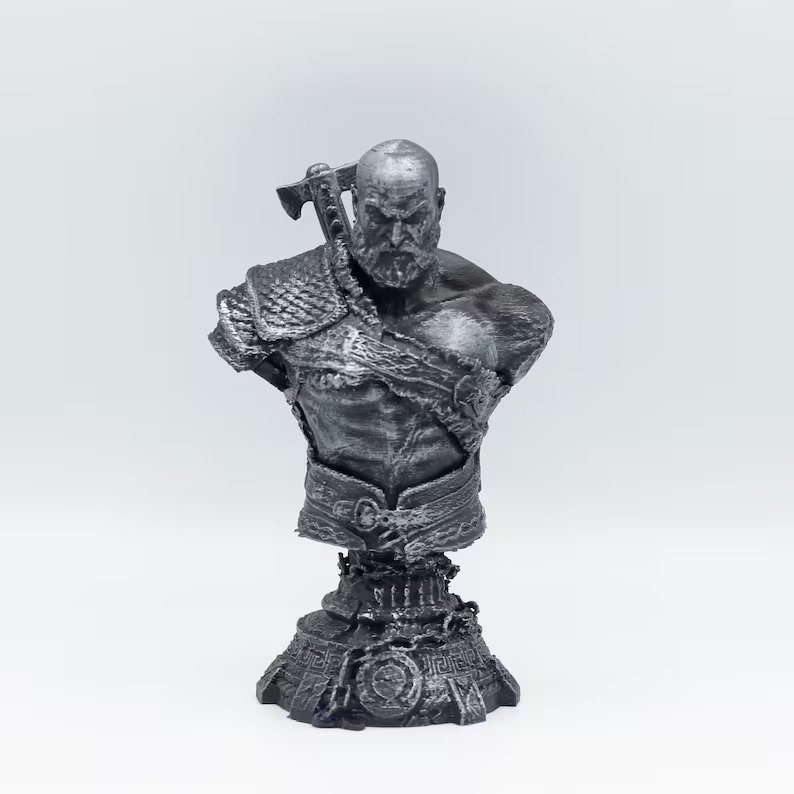
In Greek mythology, Kratos was a god and the divine personification of strength. He was the son of the Titans Styx and Pallas, and had three siblings: Bia who represented force, Nike who was the goddess of victory, and Zelus who represented zeal.
The four siblings were first described in Hesiod’s Theogony. Accordingly, Kratos and his siblings lived together with Zeus, as their mother Styx had requested a place for them in Zeus’ regime. In other myths, however, Kratos is said to be a son of Zeus with a mortal woman. In this case, Kratos would be a demi-god.
As a god of strength, Kratos is described as incredibly brutal and merciless. In both Theogony and subsequent works by other Greek authors, Kratos is often shown mocking and tormenting other gods and heroes. He resorts to unnecessary violence whenever he desired.
Kratos and Prometheus Bound
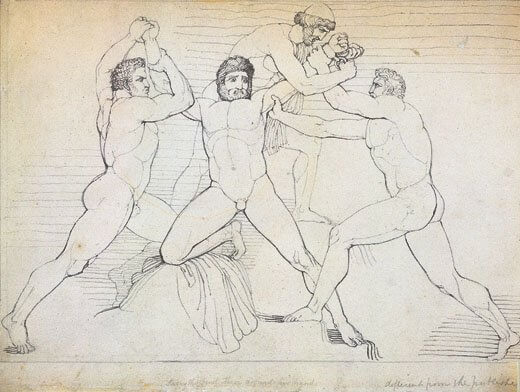
Kratos most important role in Greek mythology is as one of the gods who held the Titan Prometheus down as he was being bound to a rock in the Scythian wilderness. This myth appears in Prometheus Bound by Aeschylus.
According to the myth, Prometheus had stolen fire from the gods and given it to the humans, an act which Zeus had forbidden. When Zeus found out, he was livid with rage, and ordered that Prometheus be chained up and tortured. Kratos and Bia, two of the four siblings who most represented tyrannical authority, chained Prometheus to a rock, where an eagle would eat his liver every day only for it to grow back at night.
Not one to do things in half measures, Kratos forced Hephaestus to chain Prometheus as firmly and violently as possible. The two argued extensively about the brutality of Kratos’ methods. Kratos eventually forces Hephaestus to chain Prometheus by nailing his hands, feet, and chest to the rock with steel nails and a wedge.
The brutality of this punishment isn’t viewed so much as cruel or evil, but just as the exercising of Zeus’ unquestionable authority over everyone and everything. Kratos is just an extension of Zeus’ justice and a literal personification of his strength.
Symbols of Kratos
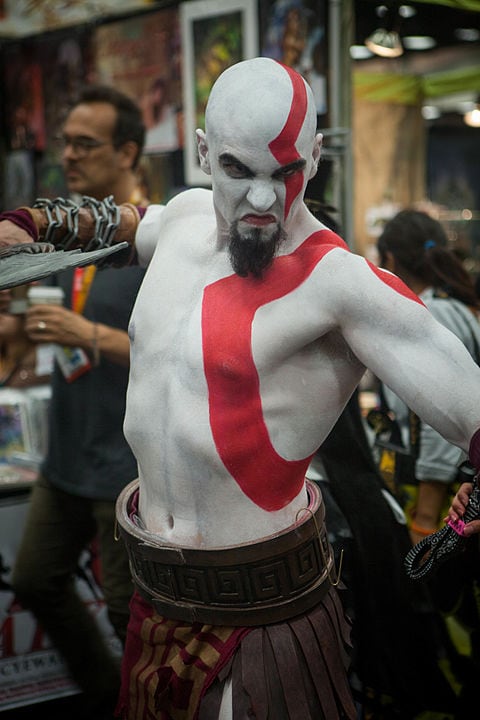
As a cruel and brutal god, Kratos symbolizes the brutish aspects of strength and conflict. He represents strength, might, and authority. However, there aren’t any specific symbols associated with Kratos, and this is partly because of the minor role he plays in Greek mythology.
Some modern-day symbols attached to Kratos from the God of War video series include the following:
- Chains and Blades: The “Blades of Chaos” are a pair of chained weapons that Kratos wields, which have become synonymous with his character in the game series.
- Red Tattoo: In the video games, Kratos has a distinctive red tattoo that winds over his eye and down his arm.
- Spartan Armor and Skirt: Representing his origins from Sparta.
- Ashen Skin: Due to a curse, Kratos’ skin is covered in the ashes of his deceased family, giving him a ghostly appearance and the nickname “Ghost of Sparta.”
Kratos in God of War
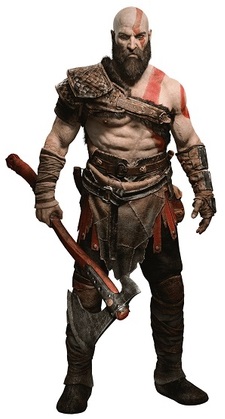
The name Kratos is very well-known to a lot of people from the God of War video game series. There, the video game’s protagonist Kratos is portrayed as a tragic Herculian-type anti-hero whose family was murdered and so he wanders ancient Greece and battles gods and monsters seeking revenge and justice.
The fact that this story has nothing to do with that of the Kratos from Greek myths is easy to notice. The creators of the God of War games have admitted that they had never heard of the god of strength and chose the name Kratos simply because it means strength in the modern Greek language too.
It is a funny coincidence, however, especially given that in God of War II, Kratos is the one who frees Prometheus from his chains. Stig Asmussen, director of God of War III, also notes that the two characters still fit together in a way given that they are both presented as “pawns” of higher powers. The only difference being that the video-game-Kratos struggles against this role of “pawn” and fights against the gods (killing most of them by God of War III) while the Kratos from Greek mythology happily accepts his role as a pawn.
Kratos Facts
Kratos is the god of strength and appears in Greek mythology as an important executor of Zeus’ will.
Kratos is a god but he isn’t an Olympian god. Instead, in some versions he’s a Titan god, although certain accounts describe him as a demi-god.
Kratos’ parents are the Titans, Pallas and Styx.
Yes, Kratos siblings are Nike (Victory), Bia (Force) and Zelus (Zeal).
Kratos signifies brute strength and force. However he isn’t an evil character, but a necessary part of building Zeus’ universe.
In Brief
Kratos is an intriguing character of Greek mythology. Although he’s brutal and merciless, he defends this as necessary in order to build up Zeus’ reign. His most notable myth is related to the chaining of Prometheus.
Related articles
Thanatos – Personified Greek God of Death
Nyx – Greek Goddess of the Night
Aphrodite – Greek Goddess of Love, lust, and Beauty
Demeter: Greek Goddess of Harvest and Her Relevance Today




